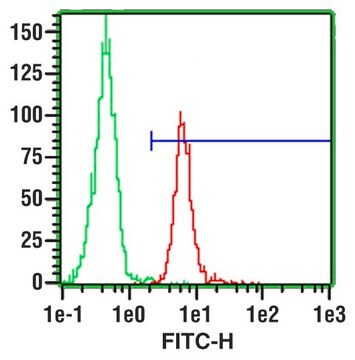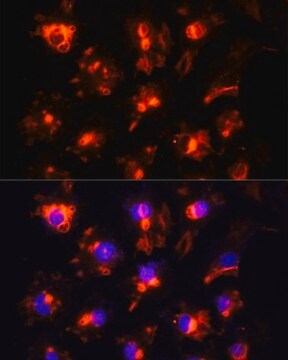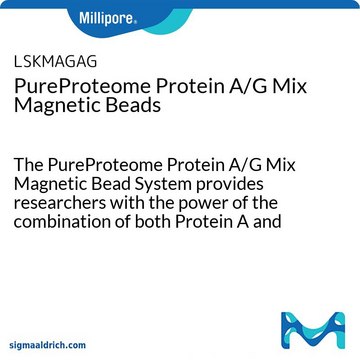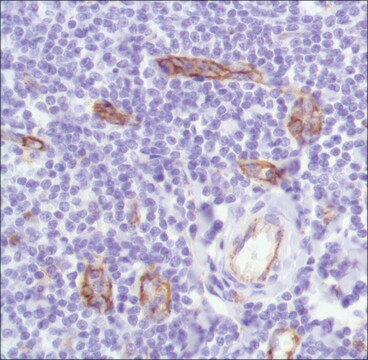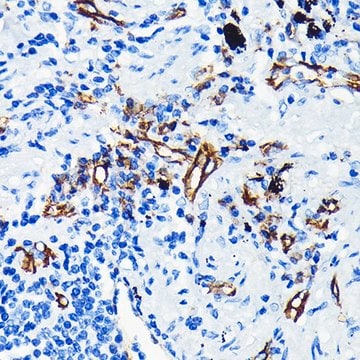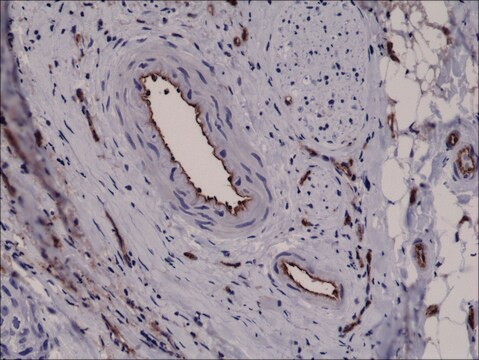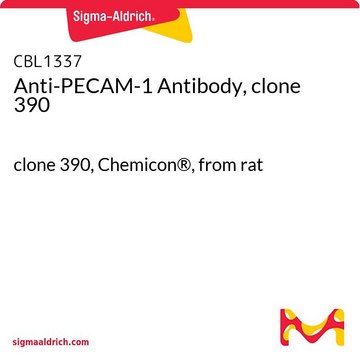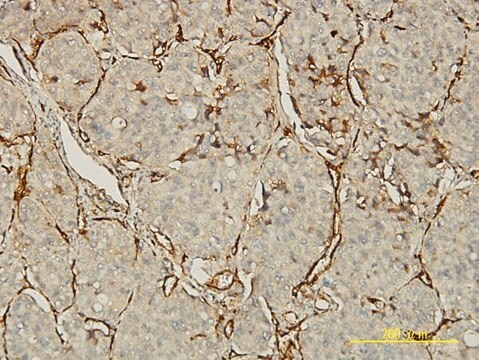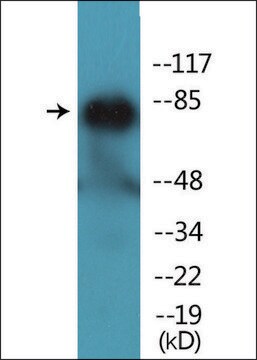Opis ogólny
Recognizes the CD31 (PECAM-1, endoCAM, gpIIa, hec7), human cell surface integral membrane glycoprotein. The antibody increases the rate of homotypic aggregation induced in U937 cells by TGF-β1. Its reactivity with platelets is enhanced following their washing.
5th Workshop: code No. P025
The cluster of differentiation 31 (CD31), also known as platelet and endothelial cell adhesion molecule 1 (PECAM1) gene, spanning 75kb, is mapped on the long arm of human chromosome 17. This gene codes for a 130kDa protein, which belongs to the immunoglobulin (Ig) superfamily. It is a vital component of the endothelial cell intercellular junction. CD31 is expressed on the surface of circulating platelets, monocytes, neutrophils and selected T-cell subsets.
The human PECAM-1 antigen (Platelet Endothelial Cell Adhesion Molecule, CD31, endoCAM. gpIIa, hec7) is a 130-140 kD single chain integral membrane glycoprotein member of the immunoglobulin gene superfamily of cell adhesion molecules. Human PECAM-1 (CD31) is expressed on platelets, myeloid cells, B lymphocytes, certain T lymphocyte cell subsets, bone marrow precursor cells and NK cells. PECAM is abundantly expressed in endothelial cells. It becomes localized to the intracellular junctions in monolayers of cultured endothelial cells. PECAM-1 (CD31) functions in homophilic and heterophilic cell-cell adhesion and cell signaling activities. It plays a major role in the transmigration of monocytes, neutrophils and NK cells between the endothelial cell junctions into the subendothelial matrix. PECAM-1 (CD31) is possibly involved in some of the interactive events taking place during cardiovascular development inflammation, thrombosis, wound healing and angiogenesis.
Specyficzność
Recognizes the CD31 (PECAM-1, endoCAM, gpIIa, hec7), human cell surface integral membrane glycoprotein. The antibody increases the rate of homotypic aggregation induced in U937 cells by TGF-b1. Its reactivity with platelets is enhanced following their washing.
5th Workshop: code No. P025
Immunogen
human cell line RC-2A, originally derived from myeloid leukemia cells.
Zastosowanie
Monoclonal Anti-CD31 (PECAM-1) antibody produced in mouse has been used in immunohistochemistry and immunocytochemistry.
Mouse monoclonal clone WM-59 anti-human PECAM-1 (CD31) may be used for studies of PECAM-1 function in cell-cell interactions, for the detection and enumeration of CD31 cells in blood and tissues, and for the isolation of PECAM-1 by immunoaffinity chromatography. Monoclonal Anti-Human PECAM-1 (CD31) was shown to increase the rate of homotypic aggregation induced in U937 cells by TGFβ1. Its binding to platelets was reported to be enhanced following their washing and concomitant activation.
Działania biochem./fizjol.
Cluster of differentiation 31 (CD31) plays a crucial role in the adhesion cascade leading to leukocyte extravasation during the inflammatory process. The encoded protein is essential for leukocyte transmigration via intercellular junctions of vascular endothelial cells. Genetic polymorphism of the gene is associated with atherosclerotic events. CD31 is a membrane glycoprotein that facilitates both homophilic and heterophilic adhesion. CD31 is also implicated in angiogenesis.
Opis wartości docelowych
Human CD31 (PECAM-1) is expressed on platelets, endothelial cells, myeloid cells, B lymphocytes, and certain T lymphocyte subsets. CD31 (PECAM-1) functions in homophilic and heterophilic cell-cell adhesion and cell signaling activities.
Postać fizyczna
Solution in 0.01 M phosphate buffered saline, pH 7.4
Uwaga dotycząca przygotowania
Product filtered through a 0.2 μm filter
Oświadczenie o zrzeczeniu się odpowiedzialności
Unless otherwise stated in our catalog or other company documentation accompanying the product(s), our products are intended for research use only and are not to be used for any other purpose, which includes but is not limited to, unauthorized commercial uses, in vitro diagnostic uses, ex vivo or in vivo therapeutic uses or any type of consumption or application to humans or animals.
This page may contain text that has been machine translated.
